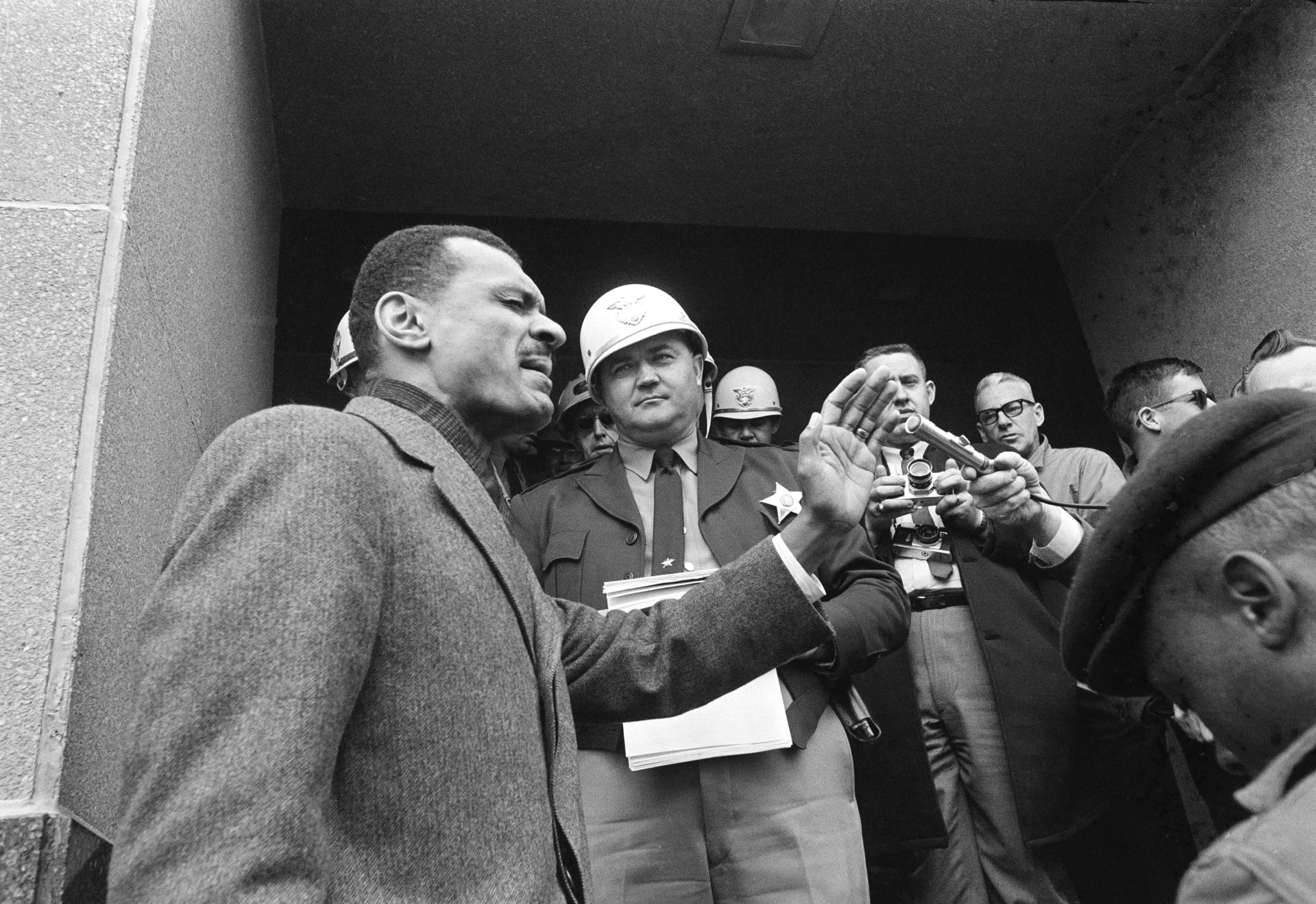Funeral services for C.T. Vivian set for Thursday in Atlanta

Denise Morse was too tired to mourn Friday.
At 3 a.m., her father, civil rights icon C.T. Vivian, died at the age of 95.
She had spent the rest of that morning and day fielding phone calls, meeting with family members and making arrangements.
Then she got a phone call that John Lewis, her father’s partner in the civil rights movement, a man with whom Vivian shared jail cells and a Presidential Medal of Freedom, had also died.
“That was the first time I had cried,” Morse said Monday. “I couldn’t take both of them on the same day.”

Now, Morse is planning a funeral.
The private funeral for Vivian, an early and key adviser to the Rev. Martin Luther King Jr., will be held Thursday at 11 a.m. at Providence Missionary Baptist Church in Atlanta.
Because of the ongoing coronavirus pandemic, the service will only be opened to the family and will be streamed live online through the church’s website and broadcast by WSB-TV.
And instead of a viewing, at 4 p.m. Wednesday, a horse-drawn carriage will carry Vivian’s body from the Historic Ebenezer Baptist Church to the offices of the Southern Christian Leadership Conference on Auburn Avenue. Vivian’s family is encouraging mourners to line Auburn Avenue for the processional.
Gerald Durley, pastor emeritus at Providence, will deliver the eulogy at the funeral. Durley met Vivian in 1960 when he was a student at Tennessee State University and a member of the Nashville Student Movement, which Vivian played a key role in.
“I really want to highlight the man I met when I was 18,” Durley said. “C.T. was not a sad man. I want to tell the story of the virtues of a man who lived his life, uplifted the community and the African American community through justice and equality.”
Vivian’s civil rights work dates back to the 1940s when he began staging sit-ins in his hometown of Peoria, Illinois. He would go on to work with students in Nashville and join the early iterations of the Freedom Rides.
On May 24, 1961, he and Lewis were arrested in Jackson, Mississippi and sent to the notorious Parchman Farm. But his trial by fire came in 1965 when he faced down segregationist and Dallas County Sheriff Jim Clark on the steps of the Dallas County courthouse in Selma, Alabama.
Clark was blocking Vivian and dozens of Black citizens who were trying to vote. After being berated by Vivian, a frustrated Clark punched the preacher in the face, knocking him down the stairs.
Vivian got right back up.

The moment galvanized the movement, which eventually led to the passage of the Voting Rights Act.
“C.T. was the most patient, impatient man I ever met. He was patient with people but impatient with injustice,” Durley said. “And when he left us, it was not at the hand of Jim Clark or a mob. He died peacefully in his bed at the age of 95, knowing what he had accomplished. Surrounded by his family. God gave him a long life.”

On Monday, U.S. House Speaker Nancy Pelosi said in a letter to members that Lewis’ family is holding off on announcing his funeral details out of respect for Vivian. After Vivian’s services are held, details about Lewis’ memorial will be released.
Durley said that Vivian, who never promoted himself, might become even bigger in death than he was in life. Morse said the responses she has gotten from all over the world, as well as from former President Barack Obama, might confirm that.
“We were not prepared for the onslaught of activity and shocked by the number of people around the world who have been supportive,” Morse said. “The family is just grateful and proud that he was our dad. We didn’t know how great he was. He was just dad and he left us a legacy that surpasses anything we have hoped for.”

